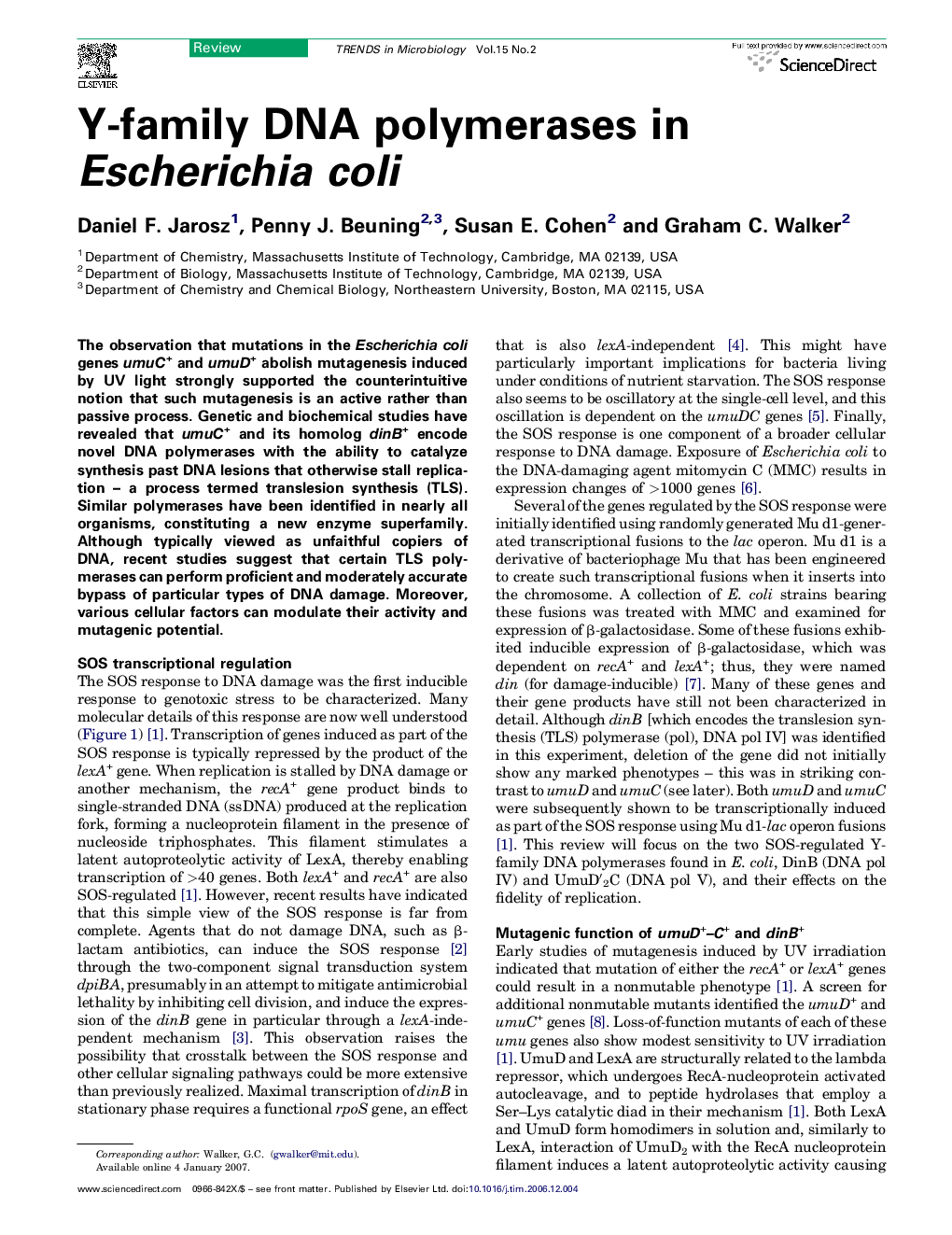| Article ID | Journal | Published Year | Pages | File Type |
|---|---|---|---|---|
| 3422589 | Trends in Microbiology | 2007 | 8 Pages |
The observation that mutations in the Escherichia coli genes umuC+ and umuD+ abolish mutagenesis induced by UV light strongly supported the counterintuitive notion that such mutagenesis is an active rather than passive process. Genetic and biochemical studies have revealed that umuC+ and its homolog dinB+ encode novel DNA polymerases with the ability to catalyze synthesis past DNA lesions that otherwise stall replication – a process termed translesion synthesis (TLS). Similar polymerases have been identified in nearly all organisms, constituting a new enzyme superfamily. Although typically viewed as unfaithful copiers of DNA, recent studies suggest that certain TLS polymerases can perform proficient and moderately accurate bypass of particular types of DNA damage. Moreover, various cellular factors can modulate their activity and mutagenic potential.
